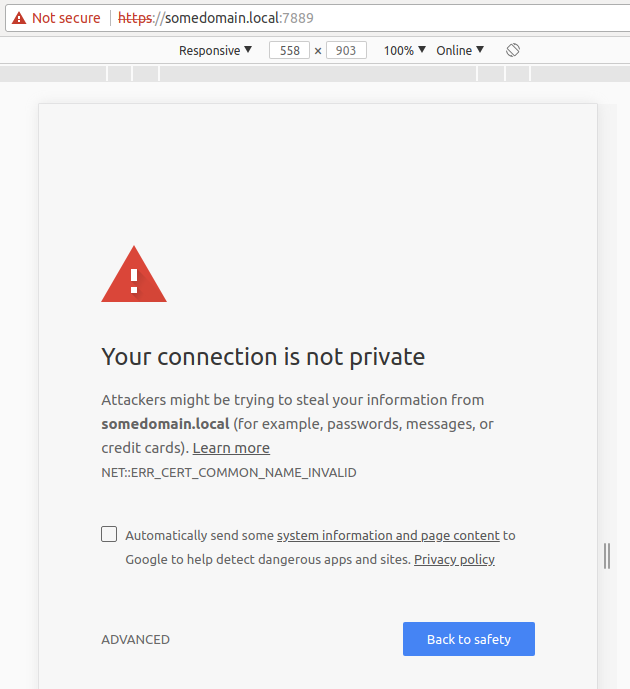A few weeks ago I bumped into mkcert, a tool written by Filippo, the same guy behind the popular heartbleed test tool.
The tool in question answers one simple need:

By creating a local root CA file that gets installed in your system, making all
certificates issued by mkcert trusted:

After downloading the latest release from Github you can simply “install” it
by running mkcert -install. Once that is done, you can create your first,
trusted (by your own system) certificate:
1 2 3 4 5 6 7 8 | |
For example, here’s how it would look like if you had to boot a node server with SSL support:
1 2 3 4 5 6 7 8 9 10 11 | |
Pretty neat, ah? What mkcert does is to simply add another CA file
in your system (I guess under /etc/ssl/certs/ca-certificates.crt, but I’m not
entirely sure) so that browsers consider these certificates trusted — a nice
workaround to trick any HTTP client.
Adios!